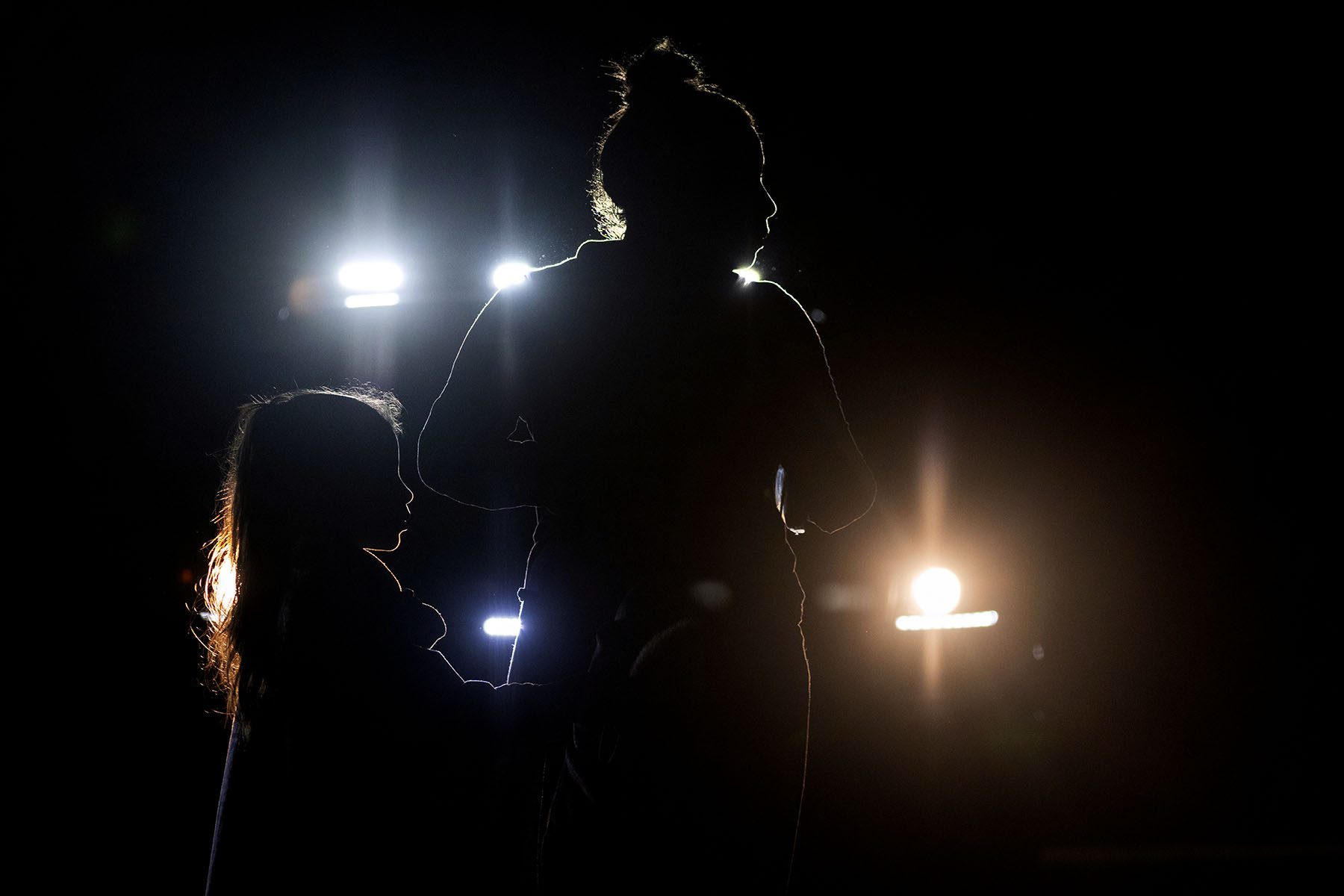Texas’ six-week abortion ban has effectively eliminated in-state access to the procedure for teenagers who are being held in immigration detention facilities for unaccompanied minors, despite court orders that give them the right to all reproductive health care options — including abortion.
As a result, those teens are largely being transferred to immigration facilities in other states that have not banned the procedure after six weeks.
It’s not clear how many undocumented minors have requested abortions or had to be transferred from Texas to other states to receive abortions. Comprehensive numbers are kept by the federal Office of Refugee Resettlement, which did not respond to multiple requests for information. But since September 1, when the law known as Senate Bill 8 took effect, at least a handful of unaccompanied pregnant minors in government immigration facilities have sought abortions in Texas, according to legal advocates and physicians.
All were turned down because they were past six weeks of pregnancy or could not get legal permission for an abortion in time, the advocates say. At least some of those patients were then moved to facilities in other states for abortion, a process that — by delaying when in pregnancy someone can get an abortion — often results in a more complex and potentially more expensive procedure.
“If it wasn’t for SB8, every single one of them that has come through so far since September 1, we could have treated no problem,” said Dr. Blair Cushing, a physician who performs abortions at Whole Woman’s Health in McAllen, Texas. The clinic is the main abortion-providing clinic for many of the state’s immigration facilities for unaccompanied minors.
Children and teenagers who come to the United States without a parent or legal guardian are detained in ORR facilities. The government is supposed to provide food, housing and any necessary medical care – including abortions — and then send those minors to some sort of adult sponsor. Texas is home to more of those children than any other state.
But in Texas, anyone seeking an abortion who is under 18 must first have proof of parental consent, or get approval from a judge — a process known as judicial bypass, which typically takes at least a week, but often more. The federal government, which ostensibly has guardianship privileges for minors in immigration facilities, does not typically provide such consent. As a result, all undocumented minors must get approval from a judge before they can end a pregnancy.
In the past month, Cushing has seen four teenage patients who were pregnant and undocumented. Three were already too far along in the pregnancy to get an abortion in the state of Texas. The fourth was not yet at six weeks. But by the time she would have gotten judicial approval, she likely would be past the point at which an abortion is available in Texas.
The patients Cushing sees in these cases are typically younger, she added — 14 or 15 years old — and many appear to have become pregnant as a result of sexual assault. Some don’t realize they are pregnant until they reach the detention facility.
By then, it’s too late for an abortion — at least in Texas.
“It was immediate that it became almost impossible for most immigrant minors to get an abortion,” said Rosann Mariappuram, executive director of Jane’s Due Process, an organization that helps pregnant minors in Texas get access to abortions. “We try to date their pregnancies as quickly as possible, but in almost all the instances we’re seeing youth that are past six weeks — and not by a little bit.”
In a lawsuit challenging the Texas abortion ban, the Department of Justice noted that the law has interfered with the federal government’s ability to provide the full range of medical care to people under its jurisdiction — including undocumented minors who are in government facilities and legally entitled to the option of an abortion.
As of October 1, the federal government has issued guidance directing detention facilities to give any pregnant minor in a Texas-based site the option of being transferred to another state that has less punitive abortion laws.
Already, Texas-based immigration facilities had been making such arrangements, Mariapurram said. But it’s a tricky process.
The government must find a facility with open space, in a state where abortion is more available than Texas or where there is a strong network of lawyers and advocates to help people access one — typically New Mexico, New York, California, Oregon and Arizona.
Since children aren’t supposed to stay long-term in detention facilities, there should be the prospect of a nearby sponsor or relative who can offer them a home.
For minors, leaving Texas also means losing contact with any lawyers or support networks they may have established and starting from scratch in a new facility. And if the minor in question has been exposed to COVID-19, their trip could be delayed by a week because of quarantining protocols.
All of that adds up.
“It’s devastating, and there are multiple layers of devastating,” said Brigitte Amiri, who heads the reproductive freedom project at the ACLU. “It’s a delay in accessing care which — we know abortion is safer the earlier you can access it. Unnecessary delays increase the risk.”
That’s the concern Cushing raised.
One girl she saw was just over seven weeks pregnant, she said. If not for the Texas law, she could have received a medication abortion, a two-pill regimen that does not involve surgery, and is far cheaper. But medication abortions are only recommended up until 10 weeks of pregnancy.
If the girl had to wait more than three weeks — entirely possible, once you add in all the potential delays associated with moving states and booking a new appointment — surgery would be the only option on the table. Surgical abortions are generally safe but can be more uncomfortable and invasive, particularly for someone who has never given birth.
Another girl was about 11 or 12 weeks along. Delaying her abortion for travel would mean a more involved, potentially more painful dilation process. “For her, a delay is a really big deal,” Cushing said.
“That’s always been a part of the concern,” Cushing said. “All the different obstacles they’ve put in place have made it harder and harder for people to access care in a timely fashion. It makes it much harder.”







